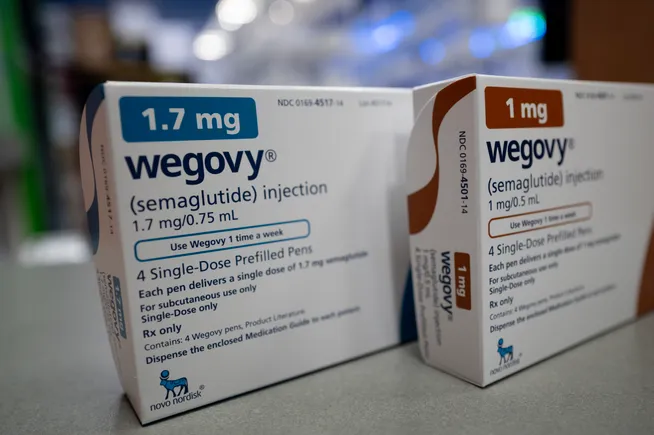Finding clear solutions to improve value
Specialty medications are a vital component of treatment for some of the most complex (and oftentimes rare) conditions. “Specialty” is a term generally used to describe innovative medications such as biologics, advanced cellular and gene therapies indicated for many cancers, autoimmune conditions and genetic disorders. These medications, which have advanced rapidly in recent years, have dramatically increased in cost, and it’s estimated that specialty medicines will represent 43% of global spending in 2027. Without proactive intervention, these rising costs will continue to pose significant financial burdens on healthcare systems, insurers and patients alike.
As we explore strategies to manage complex treatments, it’s important to clarify that the focus for the remainder of this report will be on medical pharmacy—specialty medications covered under the medical benefit rather than the pharmacy benefit.
Medical pharmacy represents a significant portion of overall specialty pharmacy costs due to its complexity, with medications often administered via injection, infusion or implant at home or in settings like hospitals, infusion centers, provider offices or specialty pharmacies.
To address the complex challenges facing medical pharmacy, Skai Blue Cross Blue Shield has developed a nuanced, whole-system approach that addresses cost drivers, streamlines processes and improves patient and provider experiences in administering and managing these high-cost, high-impact therapies. Here’s how.
1. Establishing a dedicated review practice
The rapidly advancing and evolving medical pharmacy landscape requires robust, clinically driven coverage criteria for drug approval and benefit application. Current practices, which can range from outright denial to blanket approval of expensive medications based solely on FDA approval, are far from ideal and can be extremely costly. Skai helps payers bridge the gap by adopting more comprehensive approaches to evaluating the clinical effectiveness of medication therapies, like tracking specialty medication status prior to FDA approval and making ongoing assessments of each medication’s clinical evidence to maintain appropriate coverage.
2. Adopting a progressive and proactive approach with lower-cost alternatives
The lack of low-cost alternatives to brand-name medications has historically limited affordability. And while biosimilar production is booming, their adoption by providers in the U.S. market has been met with some resistance. To steer members to these and other lower-cost alternatives, Skai is prioritizing them in certain drug classes and allowing coverage of the non-preferred options only when it is clinically appropriate for the member.
3. Using scale to reduce total net cost
Leveraging their collective scale, Skai and others have come together to create a first-of-its-kind approach to help lower wholesale costs across the board. This initiative, known as the Synergie Medication Collective, is a new medication-contracting organization founded by a group of Blue Cross and Blue Shield-affiliated companies to serve Blues and select independent health plans. Through strategies like volume-based contracting and value-based models, Synergie is focused on improving affordability and access to costly medical benefit drugs for nearly 100 million Americans.
4. Offering assurance against financial risk for cell and gene therapy
The burgeoning field of cell and gene therapy offers cutting-edge treatments for rare diseases but also comes at an exceptionally high cost, with single treatments totaling as much as $4.2 million. To help employers manage the financial risk associated with these high-cost therapies, Skai offers a Gene + Outcomes program that provides significant financial risk mitigation by offering reimbursement for ineffective treatments.
5. Reducing treatment delays
Prior authorization is a standard practice where a health plan reviews and authorizes a medication before it is approved for coverage. While this is important to ensure a drug therapy aligns with evidence-based guidelines, it can cause significant delays for patients. To minimize delays and enhance patient-provider relationships, Skai employs a streamlined approach that includes a specialized review team that prioritizes clinical and financial appropriateness and real-time benefit checks, ensuring treatments are reviewed more quickly and with ease.
6. Optimizing site of care
Members are often unaware of the best site of care for their medical treatment. By considering factors like ease of access, cost-effectiveness and quality of care, Skai ensures that members are treated at the facility that best suits their unique needs while also optimizing savings.
7. Providing comprehensive, integrated support
Members who receive medical pharmacy medications commonly need help navigating their complex health journey, typically with the help of a case manager. Skai goes a step further by empowering case managers with a shared view of each member’s medication history, enabling them to work collaboratively with Skai pharmacy, medical and utilization management teams to provide more cohesive, personalized and effective support.
Read the full report for more.
Skai Blue Cross Blue Shield is a new health plan purpose-built for national employers who expect more than the status quo. Skai draws on decades of experience solving the challenges of leading companies. Skai pairs this experience with the commitment to provide flexible, data-driven solutions tailored to the needs of each client and workforce.
Skai’s Medical Pharmacy Program offers comprehensive support for plans through the strategies outlined in this report to optimize savings and enhance the experience for members and employers.
To learn more about how Skai Blue Cross is pioneering better healthcare, visit SkaiBlueCross.com.






Leave a Reply